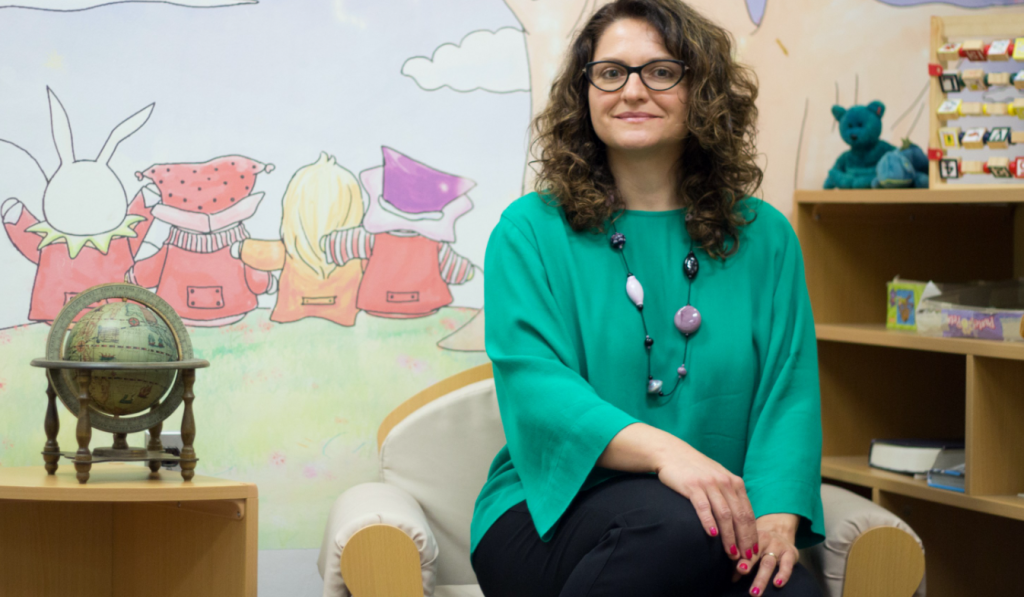How to help children recover from mental health set backs caused by the pandemic?

Posted Nov 13, 2022 8:54 pm.
Last Updated Nov 13, 2022 8:57 pm.
A University of Alberta (UofA) professor says parents can help their kids recover from the mental health issues associated with the pandemic by spending more time as a family, and allowing children to have unstructured play.
Professor and registered psychologist Christina Rinaldi says more family time improves children’s learning and social development.
A survey focused on high school students in the United States, shows around 44 per cent of students said they felt consistently sad or hopeless, and more than a third reported poor mental health.
Professor and registered psychologist Christina Rinaldi says parents can help their kids recover from the mental health consequences of the pandemic with structured home routines and allowing time and space for unstructured play. #UAlberta @UAlbertaEd https://t.co/RMeuZYOhq5
— University of Alberta (@UAlberta) November 3, 2022
Rinaldi says this is due to due to the social disruption caused by school closures, as many students were cut off from their peers during essential years of their social development.
Rinaldi’s research has considered the “relationship between adolescents and their parents during the pandemic and reintegration, and the different roles of mothers and fathers in home schooling.”
K-12 students affected by learning interruptions could lose close to three per cent of their income in their lifetime, if they are left with out a recovery plan, according to the Organization for Economic Co-operation and Development.
However, Rinaldi says parents should not give up.
“I don’t like the alarmism,” she said. “Kids are remarkably resilient and will recover.”
Recovery through ‘sleep, nutrition, and exercise’
Rinaldi says “sleep, nutrition, and exercise” are very important for the journey of helping children recover.
“Those I think are foundational — all the other stuff can come after,” she explained.
Rinaldi says the pandemic restrictions made many people find joy while hanging out with family, nurturing relationships, and discovering shared interests — some of the best ways to recover.
However, she acknowledges that this scenario does not necessarily apply to everyone.
She says some may live in abusive situations such as, “physical abuse by a parent or other adult in the home, including hitting, beating, kicking, or physically hurting the student.”
But her study also shows some parents and students developed stronger ties during lockdowns.
“They were forced to be present with each other, and they started to value it. Those were beautiful opportunities for some. They grew closer together,” she explained.
READ MORE:
-
UAlberta research aims to boost farmers’ mental health
-
Understanding brain structure identifies reading disabilities: UCalgary study
-
‘TikTok is not the place’ for mental health support
She adds her research also shows the pandemic learning disruptions gave students more time to play, which is also important for their development.
In addition, some studies have shown unstructured playing can help kids develop their cognitive abilities and problem solving skills.
Rinaldi says the pandemic gave some families the opportunity to step back, and re-evaluate their priorities, and what is important for them.
“People think they have to make up lost time,” said Rinaldi. “It’s part of this anxious assumption that we’re always behind, or we always have to do better.”
“But what do I want to continue doing? What can we afford to give up? Do we really need to be running around all the time doing everything?”
Students who were having difficulty with school even before the pandemic, perhaps because of a reading disability, might need some extra help to stay on track, Rinaldi notes. For others it’s important to pay close attention to how they’re doing, foster healthy coping strategies, and intervene if they are struggling.
She says some students who had difficulty with school related to a reading disability, had the opportunity to have extra time to learn, and others had the opportunity to reflect on their performance, leading to fostering healthy coping habits.
“But you aren’t alone in figuring this out,” she adds. “There are supports that can help you get the information that you need, either at school or online,” she explained. “My biggest message for parents: be present for your kids and provide a warm, responsive home. Communication and connection are the most important things.”








